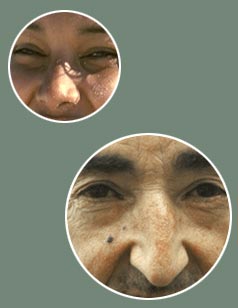 |
|
Jewish people in England |
 |
 |
|||
 |
||||
|
The post-medieval Jewish settlement began with Cromwell, who had dealings with Jewish people for funds and invited them to return to England. This continued with the restoration of Charles II. Their expertise in Hebrew and Arabic was of interest to the University, which initially encouraged them to convert to Christianity, although by the early 19th century they had become much less inclined to do so. Oxford's first professing Jew, and one of the most remarkable, was Isaac Abendana, who lived until 1699. He lectured at Magdalen and other colleges, and also went to Cambridge. We also know of a David Francisco Lattes, who taught Hebrew and published a grammar with the Oxford University Press in 1758. Lattes also taught music and modern languages, and was a convert. In the mid 18th century four or five Jewish families resided in Oxford, and Jewish peddlers were a familiar sight in the Oxfordshire countryside, perhaps because of the proximity of Oxford, with its established Jewish families, for the Sabbath. In Oxford these families were scattered about the town, with no particular centre as St Aldates had been in medieval times. Although numbers grew a little, there were never more than a dozen households at any one time; numbers only temporarily increased during the Second World War. At the end of the 18th century, people of Jewish descent began to figure in the University in increasing numbers, but it was not until the second half of the 19th century that they were admitted as members of the University. The last legal bar to the full membership of Jews was removed in 1871 with the University Tests Act. In 1846 a Jewish Community was organised with a makeshift synagogue in George Street. This was transferred to Worcester Place in 1878, and in 1893 moved to its present home in Richmond Road, Jericho. Apart from teaching Hebrew, Jews became merchants, dealing mainly in second-hand clothing, jewellery, watches and clocks, and cigars. One was Joel Zacharias, who in 1846 transformed his father's hardware business into a waterproof business. The former Zacharias shop windows on Ship Street sported ‘boxcloth, double-breasted, ventilated, double-stitched waterproof coats with laid-on velvet collars'. ‘Zac's Macs' closed in 1983 having been outfitters and purveyors of waterproofs for 127 years; the premises is now a Laura Ashley shop, and famous also as one of the city's oldest and most interesting buildings outside the University, dating mainly from the 1390s. It
is possible that Jews introduced the custom of drinking coffee from
the Levant. In 1651 a ‘coffey' house opened by Jacob the Jew
is mentioned at the Angel Inn in the parish of St Peter-in-the-East.
Thereafter coffee houses became very popular meeting places both
for the exchange of news and gossip and for more serious discussion. |
 |
|
 |
 |
 |
 |

| How to navigate | Project partners | Cultural change | Minority groups |